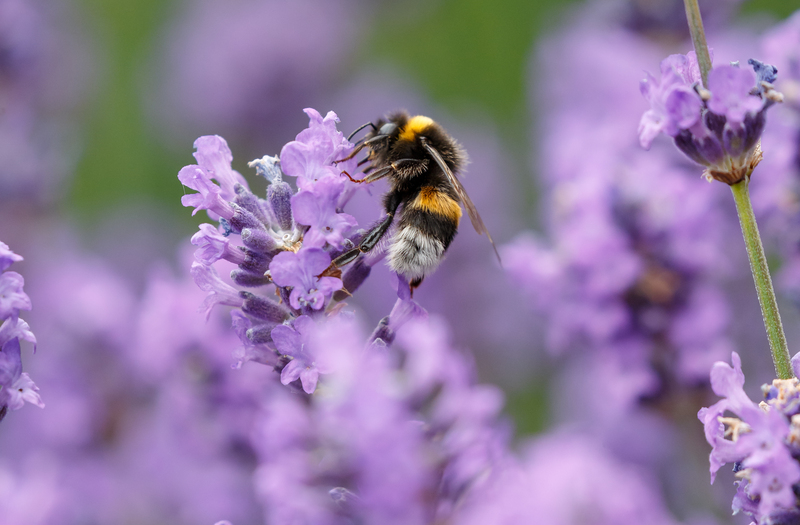Inspiring Your Child's Love for Nature with a Garden
Posted on 04/06/2025
Inspiring Your Child's Love for Nature with a Garden
Nature is a powerful teacher, offering children a world full of discovery, wonder, and joy. In our technology-driven world, it's more important than ever to reconnect families with the environment. Inspiring your child's love for nature with a garden is one of the most rewarding gifts you can offer. By nurturing this relationship, you not only encourage healthier lifestyles but also foster lifelong environmental stewards.

Why Encouraging Children to Connect with Nature Matters
Modern life often pulls children indoors, leading to a phenomenon known as "nature-deficit disorder." When kids lose touch with nature, they miss out on crucial sensory experiences, emotional growth, and vital life skills. Gardening for children is a practical, enjoyable, and meaningful way to bridge this gap, fostering curiosity, responsibility, and a deep appreciation for the earth.
- Enhances creativity by stimulating all senses
- Improves physical health through outdoor activity
- Promotes emotional well-being by reducing stress
- Teaches patience and responsibility
- Fosters environmental stewardship for future generations
The Benefits of Gardening for Kids
Gardening for children goes beyond just planting seeds. It's a holistic learning experience that shapes their minds and hearts. Here are some ways a children's garden can inspire love, respect, and responsibility for the natural world:
- Active Learning: Gardening brings science, math, and ecology lessons to life. Kids witness firsthand how plants grow, the importance of pollinators, and the cycles of nature.
- Physical Development: Digging, planting, and watering strengthen muscles and develop fine motor skills.
- Healthy Eating: Children who grow fruits and vegetables are more likely to eat them, fostering lifelong healthy habits.
- Mindfulness & Patience: Watching a tiny seed grow into a towering sunflower or a plump tomato teaches patience, as growth doesn't happen overnight.
- Sense of Accomplishment: Harvesting a garden's bounty gives children tangible rewards for their care and effort.
Planning Your Family Garden: First Steps
The journey to inspiring your child's love for nature starts with thoughtful planning. Designing a garden that excites and engages your child is essential. Here's how to get started:
1. Involve Your Child from the Beginning
Children are more invested in projects they help design. Let them pick plants, choose garden decorations, or sketch out the layout. Ask them:
- What colors do you like?
- Do you want to grow flowers, veggies, or both?
- What wildlife would you like to attract?
*Empower your child* to take ownership, making the garden an extension of their personality.
2. Choose Kid-Friendly Plants
Selecting the right plants is vital in creating a nature-loving garden for children. Opt for:
- Fast growers: Radishes, sunflowers, and beans give quick results.
- Sensory plants: Lamb's ear, mint, or lavender engage touch and smell.
- Edibles: Strawberries, cherry tomatoes, or snap peas offer tasty rewards.
- Pollinator attractors: Marigolds, cosmos, and milkweed invite butterflies and bees.
This hands-on experience encourages curiosity, wonder, and pride in their caretaking.
3. Include Fun Elements
- Wind chimes, fairy houses, or painted stones add magic.
- Pathways and stepping stones invite exploration.
- Small birdbaths or bug hotels attract wildlife.
- Repurpose old boots, tires, or wagons as planters.
Incorporating whimsical touches lets your garden unfold as a living playground for young explorers.
Engaging Activities to Foster a Child's Connection with the Garden
Regular, interactive garden activities are key to instilling a love of nature in children through gardening. Consider these engaging ideas:
1. Create a Nature Journal
Encourage your child to record plant growth, sketch insects, or note weather changes. These observations help them notice subtle shifts in their living landscape and reflect on their garden's cycles.
2. Organize Weekly Garden Tasks
- Let kids water, weed, or harvest on designated "Garden Days."
- Rotate duties to teach new skills and keep things interesting.
3. Encourage Creative Play
- Host a scavenger hunt for leaves, seeds, or bugs.
- Make nature crafts such as flower crowns or painted rocks.
- Set up a fairy or dinosaur garden using small figurines.
4. Observe and Protect Wildlife
- Install bird feeders and keep a tally of different species spotted.
- Grow pollinator-friendly flowers and watch for visiting bees or butterflies.
- Turn over a rock or log to discover decomposers like worms and beetles.
This direct contact with nature's creatures teaches empathy, respect, and understanding of ecological connections.
Building Meaningful Memories: Family Gardening Traditions
Strengthen family bonds and deepen your child's nature connection by establishing beloved gardening traditions:
- Celebrate seasonal milestones - Welcome the first bloom of spring, the biggest pumpkin in fall, or winter's first frost.
- Garden photo diary - Take photos each month to see how the garden and your child both grow.
- Harvest feast - Prepare a meal together using your homegrown produce, linking garden work with healthy eating.
These traditions help root the gardening experience as a cherished part of your family's legacy.
Overcoming Common Challenges
Gardening with children is joyful, but it comes with occasional challenges. Here's how to foster resilience and sustain a child's love of nature in the garden:
- Boredom: Mix things up with new plants, creative projects, or wildlife spotting games.
- Impatience: Choose plants that provide quick gratification and supplement with crafts during slower weeks.
- Weather woes: Use rainy days for garden-themed stories, indoor seed starting, or crafts.
- Mishaps: Turn mistakes (pulled flowers, trampled seedlings) into learning moments, not scolding opportunities.
By maintaining a positive attitude and focusing on exploration, you'll keep your child's enthusiasm alive.
Gardening Beyond the Backyard: Expanding Your Child's Nature Experience
Explore Local Parks and Community Gardens
If you lack gardening space, public parks, botanical gardens, or community plots provide invaluable opportunities for outdoor learning. Many offer kids' programs or volunteer days, letting children see diverse plants and meet nature-loving peers.
Get Involved in Citizen Science
Encourage participation in local or online projects, such as Great Backyard Bird Count or Monarch butterfly tagging. These nature engagement opportunities broaden your child's sense of environmental responsibility and foster a global mindset.

Tips for Sustaining a Child's Passion for Nature
- Lead by example. Show curiosity, joy, and awe for your own garden discoveries.
- Be patient. Every child engages with nature in their own way--allow room for exploration.
- Integrate other interests. If your child loves art, photography, or storytelling, blend these into the garden experience.
- Celebrate progress, not perfection. Praise their efforts, whether or not every seed flourishes.
*Remember*, inspiring a love for nature isn't about creating a flawless garden--it's about nurturing a lifelong relationship with the natural world.
Final Thoughts: Raising Nature-Loving Kids with a Garden
From the thrill of spotting a sprouting seed to the satisfaction of harvesting fresh food, inspiring your child's love for nature with a garden unlocks a world of beauty, learning, and belonging. By making gardening a joyful family experience, you equip your child with confidence, curiosity, and a commitment to care for our precious planet.
*So gather your seeds, dig in the dirt, and watch both your garden and your child's appreciation for nature bloom and grow!* The memories and lessons rooted in your garden's soil will last a lifetime.
Related Resources
- National Gardening Association: Kids Gardening
- Royal Horticultural Society: Gardening for Children
- Nature Lab Activity Library
By following these steps, you will be inspiring your child's love for nature through a garden--one seed, smile, and daydream at a time.
Latest Posts
Elevate Your Garden Appeal with Expert Seating Tips
Practical Solutions to Keep Your Garden Safe in Harsh Weather
Green Thumb Tips for a Blooming Herb Sanctuary

